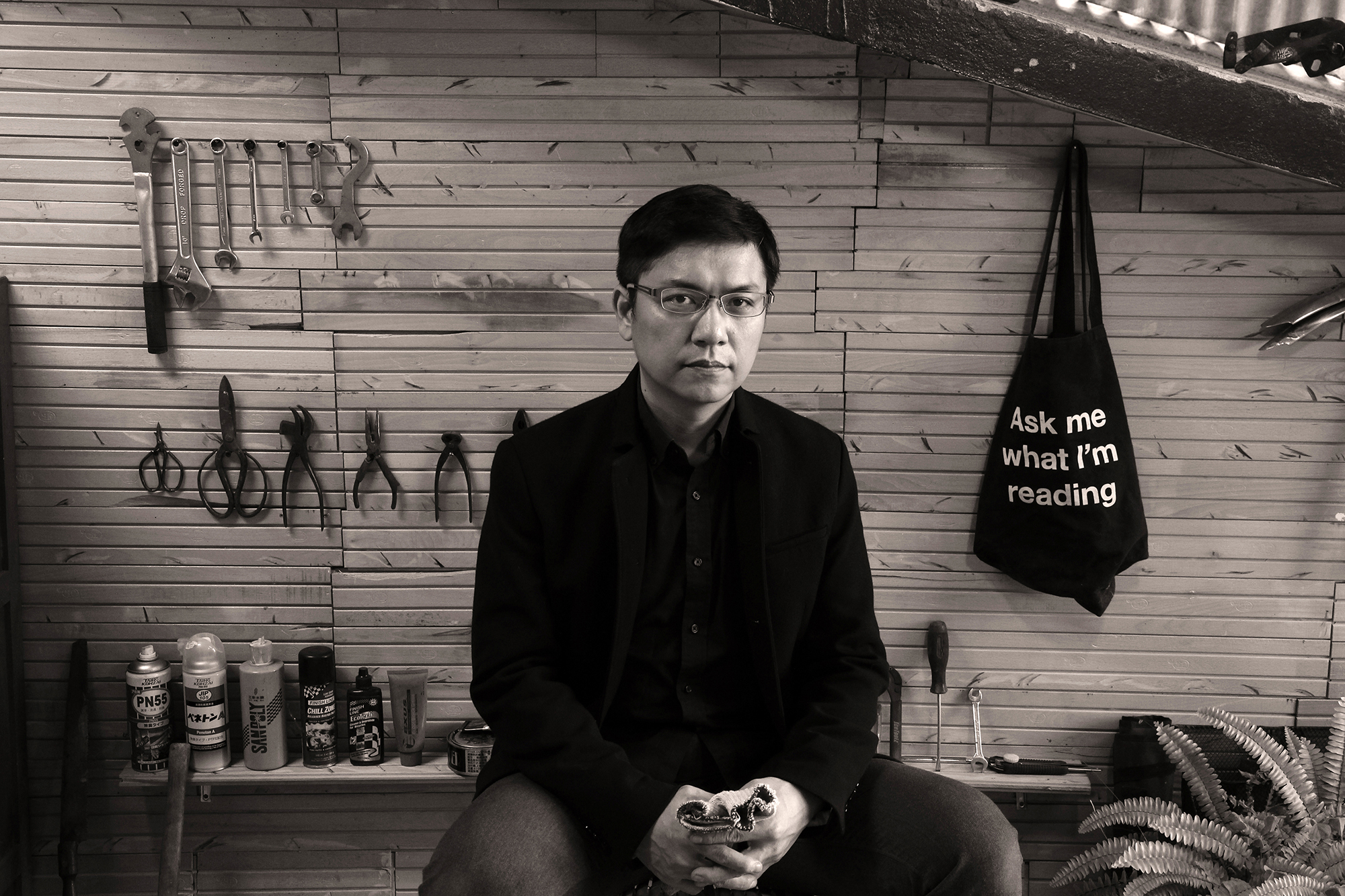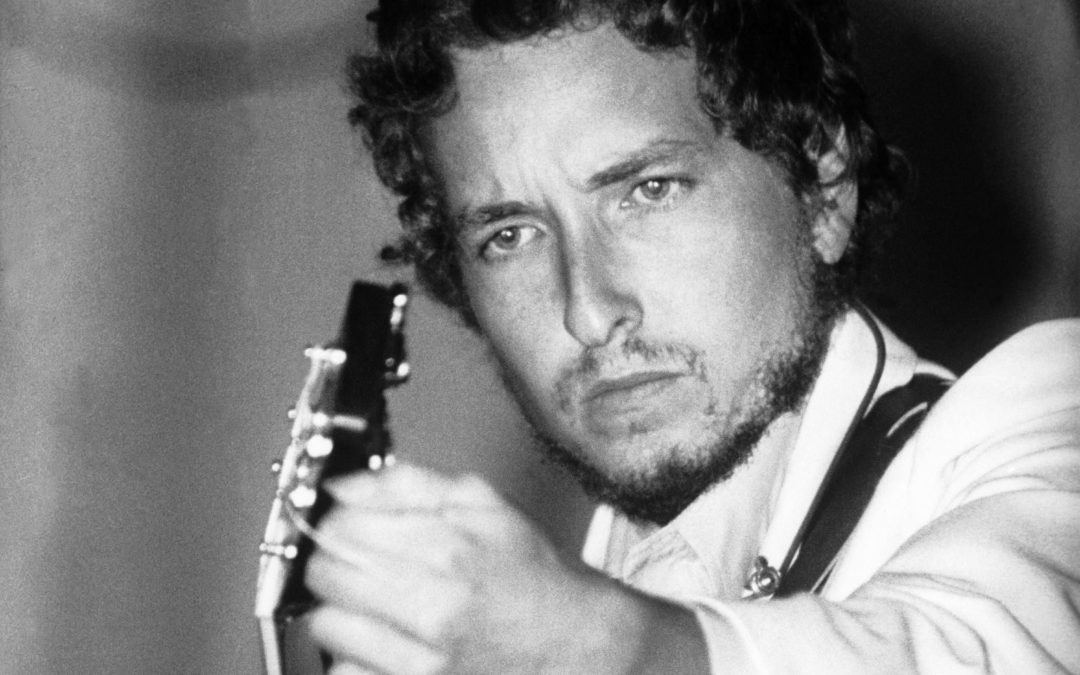Bob Dylan - The Man with the Compound Eyes
Oh, where have you been, my darling young one?
I’ve stumbled on the side of twelve misty mountains
I’ve walked and I’ve crawled on six crooked highways
I’ve stepped in the middle of seven sad forests
I’ve been out in front of a dozen dead oceans
I’ve been ten thousand miles in the mouth of a graveyard
And it’s a hard, and it’s a hard, it’s a hard, and it’s a hard
And it’s a hard rain’s a-gonna fall
Oh, what did you see, my darling young one?
I saw a newborn baby with wild wolves all around it
I saw a highway of diamonds with nobody on it
I saw a black branch with blood that kept drippin’
I saw a room full of men with their hammers a-bleedin’
I saw a white ladder all covered with water
I saw ten thousand talkers whose tongues were all broken
I saw guns and sharp swords in the hands of young children
And it’s a hard, and it’s a hard, it’s a hard, it’s a hard
And it’s a hard rain’s a-gonna fall
And what did you hear, my darling young one?
I heard the sound of a thunder, it roared out a warnin’
Heard the roar of a wave that could drown the whole world
Heard one person starve, I heard many people laughin’
Heard the song of a poet who died in the gutter
Heard the sound of a clown who cried in the alley
And it’s a hard, and it’s a hard, it’s a hard, it’s a hard
And it’s a hard rain’s a-gonna fall
Who did you meet, my darling young one?
I met a young child beside a dead pony
I met a white man who walked a black dog
I met a young woman whose body was burning
I met a young girl, she gave me a rainbow
I met one man who was wounded in love
I met another man who was wounded with hatred
And it’s a hard, it’s a hard, it’s a hard, it’s a hard
It’s a hard rain’s a-gonna fall
Oh, what’ll you do now, my darling young one?
I’m a-goin’ back out ‘fore the rain starts a-fallin’
I’ll walk to the depths of the deepest black forest
Where the people are many and their hands are all empty
Where the pellets of poison are flooding their waters
Where the home in the valley meets the damp dirty prison
Where the executioner’s face is always well-hidden
Where hunger is ugly, where souls are forgotten
Where black is the color, where none is the number
And I’ll tell it and think it and speak it and breathe it
And reflect it from the mountain so all souls can see it
Then I’ll stand on the ocean until I start sinkin’
But I’ll know my song well before I start singin’
And it’s a hard, it’s a hard, it’s a hard, it’s a hard
It’s a hard rain’s a-gonna fall
Oh, where have you been, my blue-eyed son? – This line, the introduction to the song A Hard Rain’s a-Gonna Fall, is a reference to the old medieval tune Lord Ronald, where the singer consistently refers back to a young boy, Lord Ronald, and his adventures/tales, ending in tragedy, much like the song.
I’ve walked and I’ve crawled on six crooked highways
I’ve stepped in the middle of seven sad forests
I’ve been out in front of a dozen dead oceans
I’ve been ten thousand miles in the mouth of a graveyard
And it’s a hard, and it’s a hard, it’s a hard, and it’s a hard
And it’s a hard rain’s a-gonna fall – This stanza is used by Bob Dylan to explain his perspective on the world. While he hasn’t literally done all of these things himself, he is speaking poetically and theoretically though the eyes of an all-seeing being, much like the man with the compound eyes. This stanza parallels the character from the novel in its limitless vision and is used to set up the rest of the song by giving the speaker the view of all perspectives.
And it’s a hard rain’s a-gonna fall – This line, repeated many times throughout the song, is used by Bob Dylan as a means of foreshadowing. It gives the song a sense of inevitability and prophecy, much like the meaning of the song itself. The speaker, seeing all, know what is going to happen in the world if things don’t change. However, this aspect of the man in the song is different than the Man with the Compound Eyes in the book, since it is never clearly stated that the Man knows what the future holds, only that he holds all memories within him and sees all perspectives on life.
I saw a highway of diamonds with nobody on it
I saw a black branch with blood that kept drippin’
I saw a room full of men with their hammers a-bleedin’
I saw a white ladder all covered with water
I saw ten thousand talkers whose tongues were all broken
I saw guns and sharp swords in the hands of young children – This stanza talks about situations filled with dread and despair.The lack of hope that is present in all of these lines shows that what the man in the song has seen is not positive or hopeful but rather is dreadful and impending. However, in the first line bad things themselves have not happened yet, which is important to the songs central message against nuclear war. In the other lines the arms and effects of what has occurred is not explicitly stated, but rather the dread is implied in what has happened, what will happen, and what the possibilities are of things that could occur.
Heard the roar of a wave that could drown the whole world
Heard one person starve, I heard many people laughin’
Heard the song of a poet who died in the gutter
Heard the sound of a clown who cried in the alley – This stanza is the first one to talk more directly above the harms and bad things that are occurring, rather than just signs and poetic ramblings of inevitable doom. The line saying, “Heard the roar of a wave that could drown the whole world,” parallels the book, specifically in the trash vortex as well as the nuclear testing that wipes out Wayo Wayo. This song, talking about nuclear war, has many themes and ideas that connect with The Man with the Compound Eyes, from the speaker to the message. This stanza also is one of the first to talk directly about nuclear war and its real-world effects. While it is not explicitly stated that nuclear weapons are the cause of these things they all can be seen in the example of a nuclear war. For example, the line stating, “Heard one person starve, I heard many people laughin'” Not only can talk about things that could occur if nuclear war were to ever take place but also talks about the real effects of nuclear weapons that have been used in the past. In the events of Hiroshima we see one city full of dying and starving people and one country celebrating. The final two lines talk about the death of more than just humans but also the death ideas and hope that comes with war. Ultimately, it speaks on the dying of humanity.
I met a white man who walked a black dog
I met a young woman whose body was burning
I met a young girl, she gave me a rainbow
I met one man who was wounded in love
I met another man who was wounded with hatred – This stanza is a continuation of the last, only changing in the ways in which the man has seen the world. Form been to seen to heard and to met, the song goes through not only the fears and effects of nuclear war but also goes through every perspective on the situation. This stanza in particular shows a sharp contrast between each line paralleling the contrasts between the bombers and the bombed. Half of the lines talks about the effects of nuclear war and the people living in these situations. The other half talk about a normal and peaceful society.
I’ll walk to the depths of the deepest black forest
Where the people are many and their hands are all empty
Where the pellets of poison are flooding their waters
Where the home in the valley meets the damp dirty prison
Where the executioner’s face is always well-hidden
Where hunger is ugly, where souls are forgotten
Where black is the color, where none is the number
And I’ll tell it and think it and speak it and breathe it
And reflect it from the mountain so all souls can see it
Then I’ll stand on the ocean until I start sinkin’
But I’ll know my song well before I start singing’ – This line is the finalization of Bob Dylan speaking out against nuclear war. He describes in full detail the effects of war and then describes his journey to inform and change the course of humanity. This stanza also shows a way in which the singer contrasts to the Man with the Compound Eyes. The Man cannot effect anything at all, as is stated in the book, but the singer describes fully how he will work directly to try to affect anything he can.

The Man with the Compound Eyes
In The Man with the Compound Eyes, the ideas of memory and writing are clearly seen throughout the themes of the book. In fact, the existence of the Man with the Compound Eyes is made up of human memory. This is seen in many ways such as the way in which animals and insects with compound eyes show up in every situation in which memories are being made, the man’s presence throughout the book in times of death and remembrance, Toto’s arrival as soon as Alice begins her journey, also as she begins writing the book, thus creating memory, and how the Man’s existence as a whole is constructed by Alice as a way to cope with her memories. Along with this, the many perspectives that the Man sees all go to his existence as a construct of human memory and viewpoints. “But if you represent these memories in writing, you would discover that the mind adds massive amounts of material anytime it weaves an episodic memory. In this way, the world reconstructed in writing approximates even more closely what you call ‘the realm of nature.’ It’s an organism.” (p.279) This quote goes to show that the existence of memory is quite elastic and, in fact, just as we see in how Alice alters memory in how she keeps writing on Toto’s continued living despite the fact that he has been long dead, we know that the Man is merely a product of Alice’s writing, furthering the point made by the quote and showing the existence of memory through writing comes alive, just as Toto did through Alice’s writings besides his death long ago.
The Mysterious Revelations of Nature Writing
Writers’ relationships with nature can be varied in many ways, but those who specifically write about nature seem to have quite a rich love for it. They see it as more than just a thing to look at or be a part of. It is more than just beauty and disaster, but they develop an ethical relationship that they liberate and conceptualize. It can be written and formatted in many different ways and different interpretations. In Taiwan it moved from being simple things like appreciation of scenic spots and beautiful natural backgrounds, and led to things like subtle nuances in the natural world and “heavenly illuminations of nature at the scientific, ethical, and aesthetic levels” (Wu, The Era of Democracy and Globalization 448). Writers also began to look at nature being involved in other worldly problems. For example, Alfred W. Crosby “sees environmental history as the basis for interpreting colonial history” (446). He believes that altering the natural environment of a colony would be the most successful in creating a change in a colony rather than what people would typically think of, aphasia and amnesia. Aphasia in the sense of colonization would be when someone takes your speech away from you. Like Japan colonizing Taiwan area and forcing all people to speak Japanese even if it isn’t their native language. Aphasia in a psychological/biological sense you be kind of like the severing of some area to create discord and disfunction. I think this definition would also make sense in terms of colonization. Colonizers can cut out a part of the place or people that they are colonizing in order to take it over more easily. This could be in the form of nature or something else. Amnesia is loss of memory, like when the Japanese colonized Taiwan and the history became Japanese rather than Chinese. Some nature writers take colonialism and look at it in the form of ecological colonialism. This view is that we as humans have colonized the Earth, and have changed it in our own image. When I said before that writers liberate nature, it can be seen in this form of ecological colonialism. They liberate nature from humans and create it into its own entity that is the victim of the cruelty of human nature. In the view of natural writers, we find that the entire ecological colonial empire is precisely the land that supports the conquerors to survive.

To Some I Have Talked with by the Fire
Wing above Wing, Flame above Flame
In the article titled To Some I Have Talked with by the Fire, Wu Ming Yi discusses the setting he had in mind while writing the book. He wanted the character’s stories to seem like they were being told over a fire, intimately like a secret or experience that only those who he talked to would know. He imagined that the responses of the readers would be varied, some passionate and some bored to sleep.
- “In writing The Man With the Compound Eyes, I imagined myself telling tales to a small audience huddled around the fading coals. A fiery glow blazed in the eyes of some, while merely making the cheeks other listeners flush or causing them to doze off. Tears finer than the point of a pin have formed in the eyes of a few, and a very few have ended up getting up and leaving, only to realize it is raining outside. Neither heavy nor light, the rain streaks the sky like the straight lines of precipitation in a Japanese ‘floating world’ (ukiyo-e) painting. This was the mood that sustained me through the writing of The Man With the Compound Eyes.”
Tying in with W.B. Yeats poem, it seems like Wu used the original To Some I Have Talked with by the Fire to inspire the mood behind writing The Man with the Compound Eyes. The original poem talks about telling great stories and tales by the fading coals of a fire, the stories stirring such emotions that they stay to listen until the next morning.
While I wrought out these fitful Danaan rhymes,
My heart would brim with dreams about the times
When we bent down above the fading coals
And talked of the dark folk who live in souls
Of passionate men, like bats in the dead trees;
And of the wayward twilight companies
Who sigh with mingled sorrow and content,
Because their blossoming dreams have never bent
Under the fruit of evil and of good:
And of the embattled flaming multitude
Who rise, wing above wing, flame above flame,
And, like a storm, cry the Ineffable Name,
And with the clashing of their sword-blades make
A rapturous music, till the morning break
And the white hush end all but the loud beat
Of their long wings, the flash of their white feet.
Wu also mentions that the people of Taiwan are adaptable. The theme that tie the people of Taiwan with the characters in his book is their strength in adapting to the changing environment and lifestyle, which can be summed up in the quote “wing above wing, flame above flame” from W. B. Yeats’s To Some I Have Talked with by the Fire. That’s what makes the quote so powerful for the entire book. No matter what happens to the characters, they all adapt and continue living their lives.
- “But the people of Taiwan – like the characters who populate my fiction – are all sustained by a faith in their ability to adapt. Though people sometimes talk about Taiwan as having stalled along the way, it seems to me that the Taiwanese people are casting about, trying to find a way forward. In this respect, Taiwan is a microcosm for Planet Earth, the Taiwanese people for all humanity.”


Recent Comments